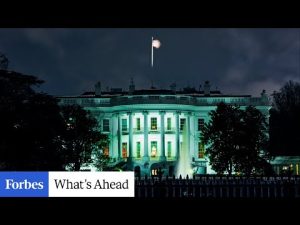In the dynamic world of international diplomacy, President Trump’s latest ceasefire deal between Israel and Gaza has certainly added another notch to his political belt. As an armistice is brokered in the region after a lengthy standoff, Israel’s government has indicated approval of Trump’s peace plan. This complex arrangement comes with a demand for the release of hostages and a tactical withdrawal by the Israeli Defense Forces. While it’s a remarkable achievement, the real test lies in the execution of the plan and its long-term impact on peace in the region.
It is no surprise that the world is watching as this ceasefire unfolds, given the stakes at hand. With hostages on one side and heated geopolitical tensions on the other, the situation remains fragile. The clock is ticking for Hamas, which has been given 72 hours to release all 48 hostages, a mix of live captures and tragic losses, courtesy of the ongoing conflict. Expectations are high, not just for those directly involved, but for onlookers from all corners of the globe. In the typical unfiltered Trump fashion, the former president has expressed his intention to visit the region, sensing yet another opportunity to cement his legacy as a dealmaker extraordinaire.
The IDF soldiers, whom some might argue are the real peace warriors in this situation, are expected to adhere to these new directives closely. Their discipline and courage, traits honed over years of conflict management, will now be channeled into ensuring the return of hostages to their homeland. The on-ground reality of executing such an agreement is no small feat, especially when dealing with an adversary as slippery and unpredictable as Hamas. For those soldiers, it’s not just about following orders but fulfilling an obligation to the nation.
Now, about that Nobel Peace Prize—it’s almost laughable to imagine that the nomination deadline was missed for Trump, delaying any accolades that might have been on the horizon. The irony, of course, is not lost on anyone who recalls Obama receiving the prize seemingly just for showing up. In a world where peace prizes are handed out like participation trophies, it begs the question, is there room for a Trump Peace Prize in our future? Perhaps there should be, if only for the headlines it would generate and the reactions it would incite.
As the days unfold, all eyes will be on the anticipated prisoner swap and subsequent demilitarization discussions. While the first part of the ceasefire involves the tangible exchange of hostages and prisoners, the second half promises to navigate the thorny issue of Gaza’s future security infrastructure. Will there be a sweeping demolition of those infamous terror tunnels, or will they persist as ever-present shadows under the sand? For now, observers can only wait and watch as the dust settles and hope that this peace, brokered with a blend of brute force and negotiation finesse, stands the test of time.







